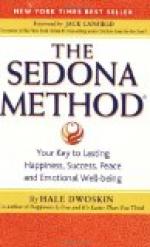When I was about 13 years of age I learned a lesson on obedience and resisting others influence that I never forgot. I let others influence me to disobey my father’s command. It was presented to me in a way so that it seemed that it would be all right, but yet it was a direct disobedience.
Unexpectedly, my parents were to be gone on Sunday. Early that morning my father came upstairs to my bedroom, and told me about their going, and told me to take the three younger children to Sunday school and church services, and then come home, prepare dinner and stay at home until they returned in the late afternoon.
After the morning services, some of the young people wanted me to go home with them for dinner and then in the afternoon they were going to another town close by, and have young people’s meeting. I repeated what my father said and told them that I couldn’t go. One girl especially began to beg me to go by saying that she was sure my father would not care. I still refused to go, so she talked to her mother about it. Her mother told me that she would take care of the three smaller children if I wanted to go with the young people to the meeting and she was sure my father would know they were in good care. This over-persuasion was hard to turn down, so I went home with them for dinner and to the young people’s meeting in the afternoon. I didn’t feel very good over it as I knew what my father’s command was and I knew that when he told me to do something he expected me to do it. Needless to say, when my father heard about it, I was punished for disobeying him. He also had prayer with me, instructing me to seek God’s forgiveness. The good intentions of others did not sway him. He told me I should not let others influence me to disobey him, regardless of what they presented. It grieved him very much to think that I didn’t do as he had told me, and he said that he didn’t know if he could trust me again. I was very sorry and grieved also, as I did want him to trust me.
My dear grandson, God is grieved when we let others influence us to do wrong, even though it may seem right to them. They might present a plausible thing, but if God said for us not to do it, we must not. We must obey God. We are individually responsible to God to give an account for our deeds. We can’t tell God that others thought it was all right. That will never excuse us.
We read of Saul, the king of Israel, who let the people persuade him to keep the sheep, oxen, etc. of the wicked nation of the Amalakites, when God had told him to completely destroy everything. The people said that they should take the best and offer them as a sacrifice to the Lord. This might have seemed plausible, but it was a direct disobedience to the Lord’s command. The Lord told Saul, “to obey is better than sacrifice.” Saul’s punishment was great. Samuel, the prophet of the Lord said, “thou hast rejected the word of the Lord, and the Lord hath rejected thee from being king over Israel.” I Sam. 15:20-26.




